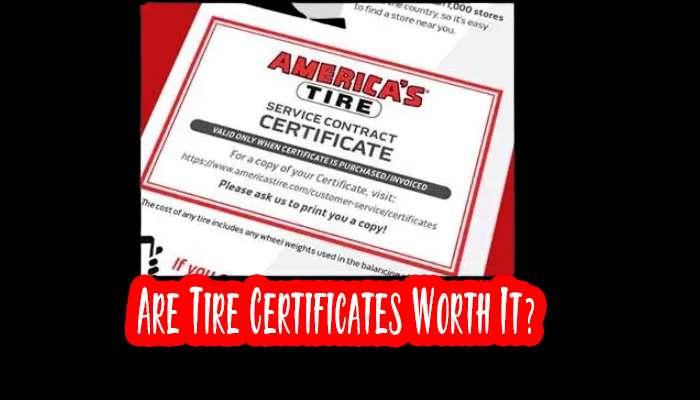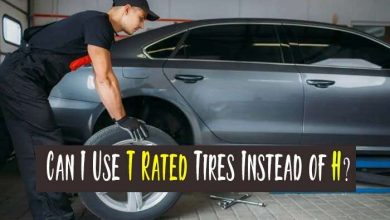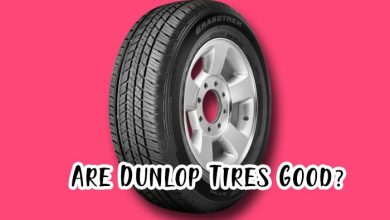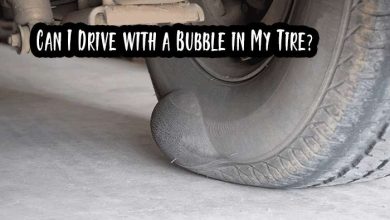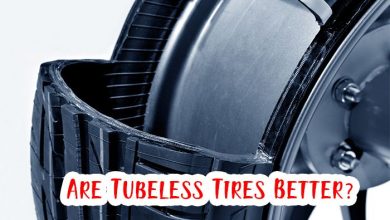Can I Mix Air and Nitrogen in My Tires?
Yes, you can mix air and nitrogen in your tires. There is no harm in doing so, and it will not damage your tires. However, it will dilute the purity of the nitrogen and lessen its effectiveness.
Picture this: you’re cruising down the highway, wind in your hair, tunes on the radio, and suddenly the thought hits you – can I mix air and nitrogen in my tires?
As a tire enthusiast, I’ve delved deep into the science behind tire inflation, and I’m here to unravel the mystery for you.
The Science Behind Tire Inflation
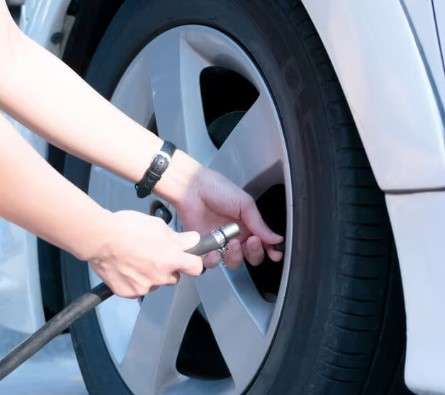
Tire inflation isn’t just about keeping your rubber companions round and sturdy. It’s a science that involves the perfect blend of pressure, temperature, and composition.
Air molecules that fill your tires tend to escape over time, affecting pressure. Nitrogen, on the other hand, is a stable gas that seeps out more slowly, ensuring a more consistent tire pressure.
Read my recent post- Can I Leave My Car Parked With A Flat Tire?
Can I Mix Air and Nitrogen in My Tires?
Can I Mix Air and Nitrogen in My Tires? Yes, you can safely mix air and nitrogen in your tires. Nitrogen is the main component of air, so there is no chemical reaction between the two gases.
However, mixing air and nitrogen will dilute the purity of the nitrogen and lessen its effectiveness. This means you may only see some benefits of using nitrogen alone, such as slower pressure loss and reduced tire wear.
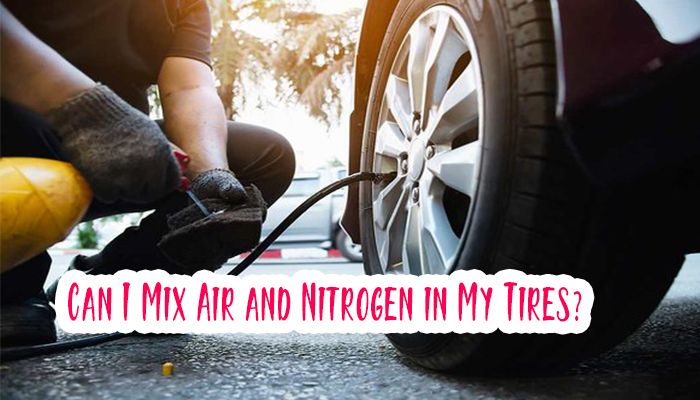
Here are some things to keep in mind when mixing air and nitrogen in your tires:
- If you are topping off a tire filled with nitrogen, you can use air without problems. However, if you are filling a tire from scratch, it is best to use nitrogen if possible.
- If you mix air and nitrogen in a tire, check the tire pressure regularly and adjust it as needed. You should also have your tires inspected regularly by a qualified mechanic.
It is generally safe to mix air and nitrogen in your tires. However, if you want the best performance from your tires, it is best to use nitrogen alone.
Myth vs. Reality: Debunking Common Beliefs
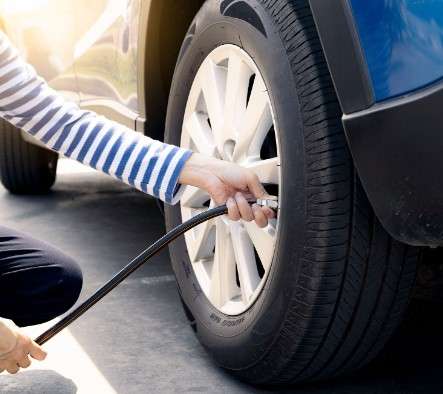
Let’s tackle some myths.
- Myth: Nitrogen never leaks.
- Reality: Nitrogen molecules are larger, reducing leakage, but are not leak-proof. Regular checks are still necessary.
- Myth: Air makes tires wear out faster.
- Reality: Both air and nitrogen contribute to wear. Proper maintenance and regular rotations are key to tire longevity.
Read More: Can I Leave A Nail In My Tire?
Pros and Cons of Using Regular Air
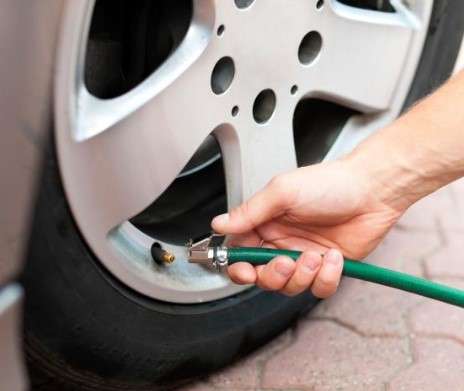
Regular air, composed primarily of nitrogen and oxygen, is the most common and readily available gas used to inflate tires. While it offers several advantages, there are also some potential drawbacks.
Pros of Using Regular Air:
- Wide Availability and Accessibility: Regular air is readily available at gas stations, tire shops, and even in many homes with air compressors. This makes it convenient and accessible for tire inflation.
- Cost-Effectiveness: Regular air is typically free or inexpensive compared to specialized tire inflation gases like nitrogen. This cost-effectiveness makes it an attractive option for many motorists.
- Adequate Performance for Most Vehicles: Regular air provides sufficient tire pressure and performance for most everyday driving conditions. It can maintain tire structure, support vehicle weight, and ensure proper handling.
Cons of Using Regular Air:
- Slower Pressure Loss Rate: Regular air permeates through tire walls more quickly than nitrogen, leading to a gradual loss of tire pressure. This can necessitate more frequent pressure checks and adjustments.
- Susceptibility to Temperature Fluctuations: Regular air is more sensitive to temperature changes, causing tire pressure to fluctuate with ambient temperature variations. This can affect tire performance and safety.
- Potential for Moisture Ingress: Regular air can contain moisture, contributing to tire corrosion and oxidation over time. This can lead to premature tire wear and potential safety issues.
Pros and Cons of Using Nitrogen
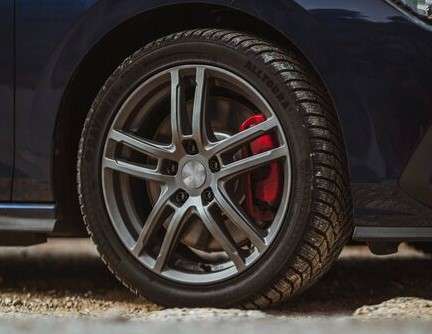
Nitrogen, a relatively inert gas that makes up about 78% of Earth’s atmosphere, is becoming increasingly popular as a tire inflation gas.
While it may seem like a gimmick or an unnecessary expense, there are several potential benefits to using nitrogen in your tires.
Read Also: Benefits of Nitrogen Filled Tires
Pros of Using Nitrogen:
- Slower Pressure Loss Rate: Nitrogen molecules are larger than oxygen molecules, permeating tire walls more slowly. This means that nitrogen-filled tires lose pressure more slowly than air-filled tires.
- Reduced Corrosion and Oxidation: Nitrogen is less reactive than oxygen, making it less likely to cause corrosion and oxidation of tire components, such as metal beads and rubber.
- Improved Fuel Efficiency: Maintaining consistent tire pressure is crucial for fuel efficiency. Nitrogen’s slower pressure loss rate can help maintain optimal tire pressure, potentially improving fuel economy.
- Enhanced Handling and Safety: Properly inflated tires improve handling and stability, improving overall vehicle safety. Nitrogen’s ability to maintain consistent pressure can enhance these benefits.
- Extended Tire Life: By reducing pressure loss, corrosion, and oxidation, nitrogen can extend the lifespan of tires, saving money in the long run.
Cons of Using Nitrogen:
- Cost: Nitrogen tire inflation typically costs more than regular air inflation. This is due to the specialized equipment and processes involved in nitrogen filling.
- Availability: Nitrogen filling stations are less ubiquitous than regular air compressors. You may need to find a nitrogen filling station.
- Limited Benefits for Some Vehicles: For everyday driving conditions, the benefits of nitrogen may need to be more significant to warrant the additional cost. Regular air may suffice for many vehicles.
Real-world Experiences
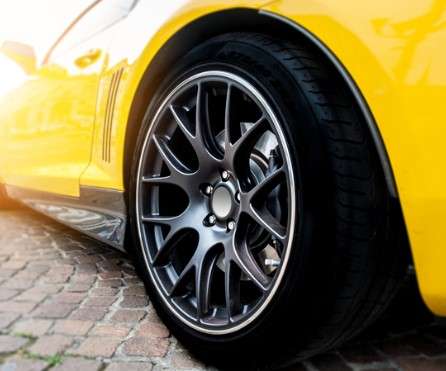
I have compiled some real-world experiences about mixing air and nitrogen in tires:
I’ve been working on cars for over 20 years, and I’ve never seen any problems mixing air and nitrogen in tires. I often recommend it to my customers if they’re on a tight budget. There’s no need to spend extra money on nitrogen unless you’re a professional race car driver.
Tire Shop Owner:
I always use nitrogen in my tires because it helps me maintain consistent pressure and performance. Nitrogen molecules are larger than oxygen molecules, so they don’t permeate through tire walls as quickly. This means my tires lose pressure slower, which is crucial for maintaining optimal grip and handling.
Professional Race Car Driver:
I’ve been mixing air and nitrogen in my tires for years, and I haven’t noticed any difference in performance or fuel economy. I also haven’t had any problems with tire wear or corrosion. I think it’s a myth that mixing air and nitrogen harms your tires.
Everyday Driver:
Air vs. Nitrogen vs. CO2
Choosing the Right Gas: A Quick Comparison
| Gas | Stability | Availability | Cost |
|---|---|---|---|
| Air | Moderate | High | Low |
| Nitrogen | High | Moderate | Moderate |
| CO2 | High (similar to Nitrogen) | Low | High |
This table is a quick guide to help you choose the right gas for your tires based on stability, availability, and cost.
Conclusion
In the world of tires, the choice between air and nitrogen isn’t a make-or-break decision. It’s about understanding the nuances and aligning them with your preferences.
I encourage you to share your tire adventures and experiments as I wrap up. What gas fills your tire and why? Let’s create a hub of knowledge for all the tire enthusiasts out there.
Glossary
- Tire Pressure: The amount of air (or nitrogen) inside a tire, measured in pounds per square inch (PSI).
- Fluctuations: Changes or variations, in this context, refer to the ups and downs in tire pressure.
- Nuances: Subtle differences or details that require careful consideration.
